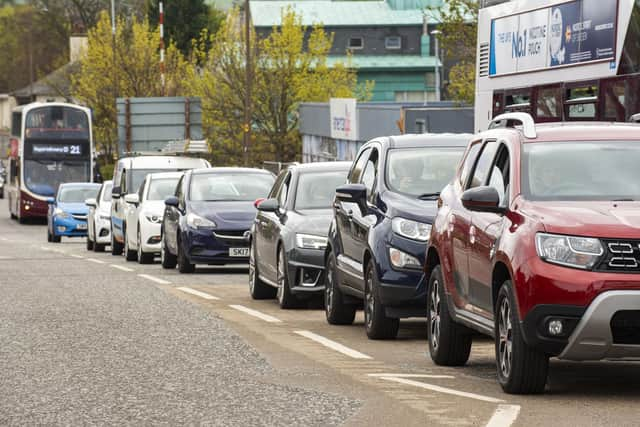Scottish Cabinet papers: Research concluded lack of trust in Edinburgh council drove defeat over congestion charge
and live on Freeview channel 276
Let us know what you think and join the conversation at the bottom of this article.
The controversial plan, which would have seen thousands of motorists paying a £2-a-day charge, was put to a referendum in February 2005. Turn-out was 61.7 per cent and the scheme was decisively thrown out by 74.4 per cent to 25.6 per cent.
Research commissioned by the Scottish Government, then known as the Scottish Executive, found a lack of trust in the council and only one in four accepted that the money raised would be used for transport projects, including a projected tramline to the Royal Infirmary.


Advertisement
Hide AdAdvertisement
Hide AdThe congestion charging plan involved two cordons, one around the city centre and one just inside the city bypass, both operating Monday-Friday. The inner cordon was going to apply from 7am to 6.30pm, while the outer one would only be in force during the morning rush hour, from 7am to 10am. Motorists would have been charged for crossing either cordon but would have paid only one charge per day even if they crossed the cordons several times.
A report presented to the Scottish Cabinet on May 31, 2006, noted Edinburgh' s road-user charging scheme had “collapsed last year after a referendum defeat”.
It continued: “The Executive commissioned research on attitudes to the proposals to lean lessons and this has now been completed. The research reflected the referendum result with around a quarter supporting it.
“The majority claimed to understand the scheme but focus groups indicated many misconceptions, eg how it would operate; amount of charge.
Advertisement
Hide AdAdvertisement
Hide Ad“They blamed external factors for congestion rather than their own behaviour; preferred transport improvements to punitive charges; wanted to reduce car use in the city centre; and wanted existing taxation to be maintained.
“Trust in the council was an underlying driver of opposition and only a quarter thought that money raised would be used to improve transport.
“Only a minority felt the council is finding good solutions to address traffic."
The research found there was no single source where most residents got their information about the scheme.
Advertisement
Hide AdAdvertisement
Hide AdAnd it said most of them seemed to have made up their mind on the plan soon after hearing about it.
The report to Cabinet said: "The study implied, and we agree, that the existence of congestion does not lead to support for charging, and good communications is critical.”
After the referendum result, the then council leader Donald Anderson said the idea of a congestion charge was "now dead and buried for Edinburgh".
But attempts have been made to revive the notion since then.
Advertisement
Hide AdAdvertisement
Hide AdIn 2019, former Justice Secretary Kenny MacAskill said it was time for Edinburgh to “bite the bullet”. He described the 2005 scheme with its inner and outer cordons as "bonkers" but claimed a charge focused on the city centre was now "badly needed".
Some critics have said the plans for a Low Emission Zone in the Capital is a return to the congestion charge plan, but the council insists the fines proposed for the LEZ are intended to prevent non-compliant vehicles from entering the zone rather than to raise revenue by allowing them to pay.
A message from the Editor:
Thank you for reading this article. We're more reliant on your support than ever as the shift in consumer habits brought about by coronavirus impacts our advertisers.
If you haven't already, please consider supporting our trusted, fact-checked journalism by taking out a digital subscription.
Comment Guidelines
National World encourages reader discussion on our stories. User feedback, insights and back-and-forth exchanges add a rich layer of context to reporting. Please review our Community Guidelines before commenting.